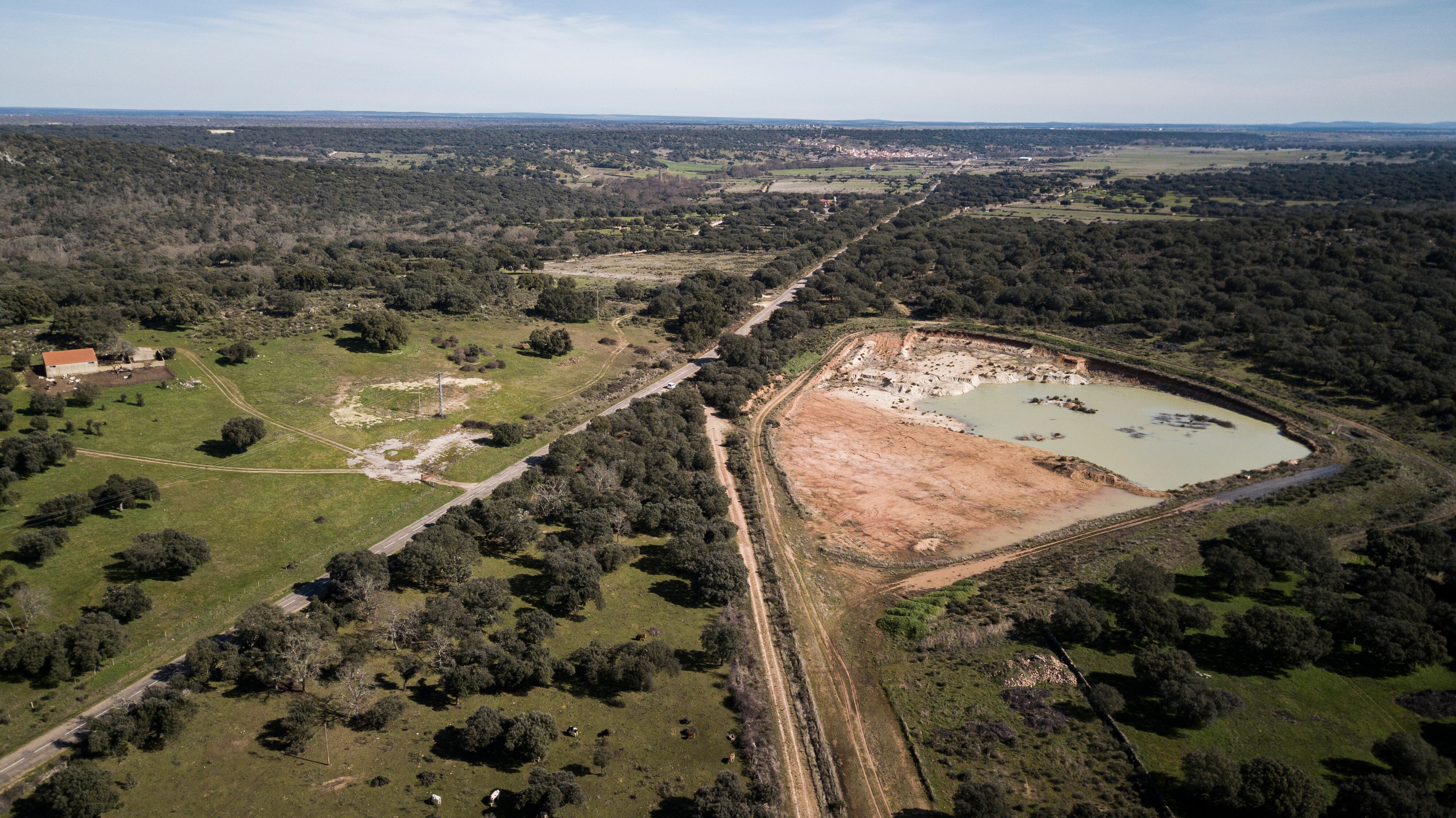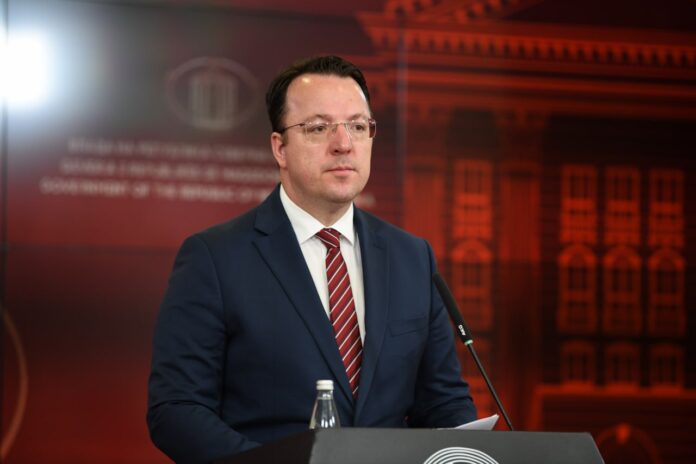A high position of Rajoy advises the company that wants to extract uranium in Salamanca and that claims 921 million to Spain | Spain

He Mass blackout of April 28 has had as one of its collateral effects the resurgence of the Debate in Spain about the continuity of nuclear energy. And one of the key pieces is the uranium used by the five atomic plants in the country, which must be imported. But a company intended to exploit A site in the Salamanca municipality of Retartillo. In the heat of the debate on the blackout, the PP has shown its support for this exploitation. The company that wanted to do it at that site is the Australian Berkeley, who has claimed 921 million euros to the State for the veto to the government mine. Of that company is an advisor Jaime García-Legaz, Secretary of State for Commerce in the Executive of Mariano Rajoy between 2011 and 2016 and president and CEO of Aena the following two years, until the change of government that led to the motion of censure with which Pedro Sánchez reached the Moncloa.
A company spokesman underlines that the former PP leader has no executive position in the firm and attributes to an error that García-Legaz Figure this Monday at the Executive Directorate and the Board of Directors of Berkeley Energía. After El País’s call, the company has modified its website and eliminated that name on Tuesday.
García-Legaz responds for his part that is part of the advisory council, which « has no executive or decision function », of the Berkeley Minera Spain. The company announced in November 2022 the signing of the former Secretary of State with Miguel Riaño and Rafael Miranda, « all of them outstanding Spanish businessmen with extensive experience and prestige, and with wide networks of contacts. » “The corporate, commercial and operational experience, in addition to its extensive business and governmental networks, will be of great help to the company in its effort to solve the current permits and, ultimately, boost the Salamanca project”, He added in a relevant fact to the National Securities Market Commission (CNMV).
A year and a half before, in May 2021, the Congress of Deputies had approved the Climate Change Law, with the abstention of the PP, in which it appears An article that vetoes the exploitation of radioactive minerals. In July of that same year, the Nuclear Safety Council (CSN) also gave the one that was considered The definitive varapalo to the project: He rejected that the construction permit of the mineral processing plant be granted, vital for this controversial mining exploitation. The CSN supported the veto on which there are risks with the treatment and storage of radioactive waste that would be generated during uranium processing and whose management will be left as an inheritance to future generations. Berkeley’s intention was to bury those waste in two of the shorts – the large holes on the ground that open in an open sky site to extract the mineral. In practice, this would be to create A radioactive waste warehouse In this small Salamanca municipality.
« The project is a bubble, it is not economically and socially viable, » says Juantxo López de Uracde, coordinator of the Green Alliance, and in 2021 deputy and president of the commission of the Congress that was responsible for the drafting of the Law of Climate Change. López de Uracde criticizes that « the parties of the rights », in reference to PP and Vox, by defending this mine « are benefiting Berkeley in their financial demand against Spain. » In addition, remember that the PP supported during the process of climate change law in Congress The amendment in which uranium mining was vetoed.
But the PP has changed posture in recent years and hardening the speech in its competition with Vox. In that struggle, the defense of nuclear energy is one of the main energy flags of these formations. “The Government drowns nuclear energy by making uranium extraction, (when) in Spain there are about 30,000 tons of uranium waiting to be obtained, singularly in the Salamanca area, and also drowning via taxation. Why can’t we open a serious, technical and solvent debate? Good, ”said the national spokesman of the PP, Borja Sémper, on May 8 in an interview in Antena 3. The eve, Sánchez had wielded in his appearance in Congress to inform the crisis by the electric zero and of the 2% rearmament in military spending for this year that the uranium deposits that exist in Spain « stopped exploding decades ago because they were absolutely unfeasible from the economic and highly polluting point of view. »
Because it was in 2000, during the popular mandate José María Aznar when the only mine that remained open. It was managed by a public company, ENUSA, which also had the permits of the Retortillo site, but resigned to develop this mining by not considering the existing reserves to guarantee the profitability of this activity.
In Spain there was between 1948 and 2000 a uranium mining in deposits of Castilla y León, Extremadura and Andalucía. The National Uranium Company (ENUSA) announced in 1998 the closure of the mine in Saelices El Chico (Salamanca), the last one that was still operational, at the end of the year 2000 after considering that it was no longer profitable. The company justified the closure for the high cost of production, « well above the prices of the international market of uranium, which motivates that the company has lost during the last years around 1.5 billion pesetas (6 million euros), a situation that will be repeated this year. » The state company also explained that, « depending on the cost of exploitation, in 2000, in the Saelices mine, there will be no mining reserve (the profitable of exploiting), even if the geological reserve is maintained. » The Spanish demand for Uranium was then about 1,400 tons of uranium concentrates, of which Enusa produced 20% and the rest had to import.
An Enusa report includes that in 1997 « the fall » of the prices of uranium concentrates « and its foreseeable negative evolution in the medium and long term, together with the liberalization of the raw material market and the need to supply the fuel at the lowest possible price », which made the public company « the orderly closure of its mining activity and, consequently, of the production of concentrates. » “Certainly, the Stocks and low prices from Eastern countries, as well as the introduction into the market of highly enriched uranium reserves from nuclear arsenals and abroad exploitation of mines of much better quality than those located on Spanish soil, had cooled the expectations of a possible increase in price of uranium concentrates « , was recognized in the document 50 years of uranium technology in Spain (1972-2022).
In that context, in 1998 the Mining Activities stop plan was authorized that provided for the mining of Ciudad Rodrigo (Salamanca) in 2001. From there the closure of facilities was planned, until Berkeley entered the scene and put his interest in uranium reserves in the province of East of Castilla y León.
The Australian company has already hired last decade to Manuel Lamela, another former high position of the PP, as lobbist In Brussels. Berkeley registered the signing of former Subsecretary of the Ministry of Agriculture in December 2014. Lamela, who was previously a Minister of Health and Transportation with Esperanza Aguirre in Madrid, registered his personal office, Countax, in the Registry of lobbies of the EU. The only customer of the advisor was the mining company and he the only lobist authorized by it. His former boss, popular minister Miguel Arias Cañete, was appointed Commissioner for Energy and Action for Climate Change one month earlier.
The company presented in May last year the claim of 921 million euros against the State before the International Center for Arrangement of Investment Differences (CIADI). May 8 was held, without agreement, the first session between the parties, According to the CIADI registry, just the day Sémper encouraged to exploit uranium in Spain.




:format(webp)/s3/static.nrc.nl/images/gn4/stripped/data132131689-939465.jpg)


